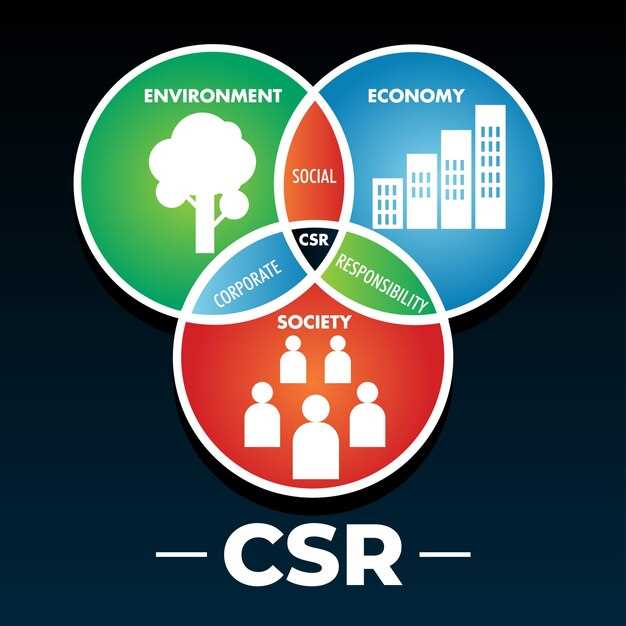The Advantages of Corporate Social Responsibility (CSR)

Enhancing sustainability and strengthening community ties are just a few of the positive outcomes that stem from engaging in ethical outreach projects. Companies that invest in philanthropic endeavors not only demonstrate their commitment to doing good, but also reap numerous business rewards in return.
By incorporating ethically-driven practices into their operations, organizations can boost brand reputation and foster employee pride. Additionally, embracing sustainable initiatives can lead to cost savings and long-term profitability, creating a win-win scenario for both the company and the community.
The Business Benefits of CSR
When businesses embrace their corporate social responsibilities and actively work towards making a positive impact on society and the environment, they can enjoy a multitude of benefits that go beyond mere profitability. Let’s explore some of the key advantages that companies can gain from implementing CSR initiatives.
Enhanced Reputation
By engaging in CSR practices, companies can build a strong and positive reputation within their communities and among consumers. This enhanced reputation can lead to increased customer loyalty, improved brand recognition, and a competitive edge in the market.
Increased Employee Engagement
CSR initiatives can also boost employee morale and engagement. When employees are proud to work for a socially responsible company, they are more motivated, productive, and likely to stay with the organization for the long term. This can result in lower turnover rates and higher employee satisfaction levels.
- Improved Customer Relationships
- Cost Savings through Efficiency
- Risk Management
Overall, embracing CSR is not just the right thing to do; it is also a smart business decision that can lead to long-term success and sustainability.
Increased Employee Engagement and Retention

Enhanced staff involvement and long-term workforce maintenance are key benefits of incorporating social responsibility practices into a company’s operations. By promoting ethical and sustainable initiatives, businesses can foster stronger connections with their employees, leading to improved job satisfaction and reduced turnover rates.
- Improved staff morale and motivation
- Enhanced sense of pride and loyalty
- Stronger team cohesion and collaboration
When employees feel that their organization is committed to making a positive impact on society, they are more likely to be engaged in their work and dedicated to achieving common goals. This sense of purpose can increase employee productivity, creativity, and overall job satisfaction, ultimately benefiting the company as a whole.
- Higher employee retention rates
- Increased employee satisfaction and loyalty
- Reduced recruitment and training costs
Enhancing Brand Reputation Through Social Responsibility
Building a positive image for your company by engaging in ethical and socially responsible practices can positively impact how the public perceives your brand. By demonstrating a commitment to giving back to the community and protecting the environment, you can enhance your reputation and build trust with consumers.
Consumers are increasingly valuing companies that go beyond profit-making and contribute to the greater good. By aligning your brand with social responsibility initiatives, you can differentiate yourself from competitors and attract a loyal customer base. Positive brand association with social responsibility efforts can create a strong emotional connection with consumers and lead to increased brand loyalty.
Building Customer Loyalty and Trust
In the realm of sustainable business practices, creating strong connections with consumers is essential. By engaging in ethical and socially responsible actions, companies can foster lasting relationships with their customer base. This can lead to increased loyalty and trust, ultimately benefiting the brand’s reputation and bottom line.
Enhancing Brand Perception
When organizations demonstrate their commitment to ethical values and community involvement, customers are more likely to view them in a positive light. This positive perception can translate into increased loyalty, as customers are more inclined to support companies that align with their own beliefs and values.
Building Long-Term Relationships
By prioritizing corporate social responsibility initiatives, companies have the opportunity to build trust with their customers over time. This trust can result in repeat business, customer referrals, and a loyal customer base that is more resistant to competitor marketing efforts.
Positive Impact on Financial Performance of Companies
Enhancing the economic outcomes of organizations through their commitment to ethical and sustainable practices is a key element of their success. By incorporating values such as integrity, transparency, and sustainability into their business models, companies can secure a competitive edge in the market while also fostering long-term growth and profitability.
Increased Revenue Generation
Companies that prioritize environmental and social responsibility tend to attract a larger customer base and enjoy stronger brand loyalty. This leads to increased sales and revenue generation, as consumers are more inclined to support businesses that align with their values and demonstrate a genuine commitment to corporate citizenship.
Cost Savings and Efficiency

Implementing sustainable practices, such as reducing energy consumption, waste production, and water usage, can result in significant cost savings for companies. By optimizing their operations and supply chains, organizations can improve efficiency, reduce expenses, and enhance overall financial performance.
Ultimately, integrating social responsibility into business strategies not only benefits society and the environment but also contributes to the long-term success and financial stability of companies.
